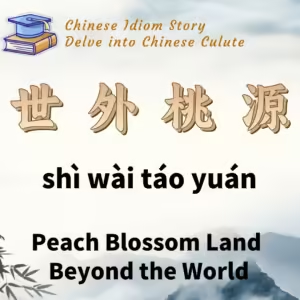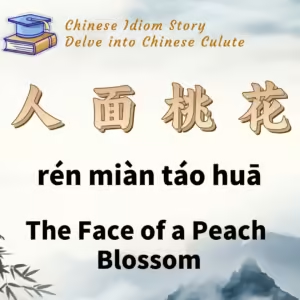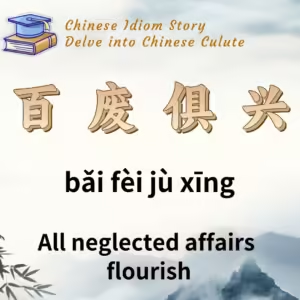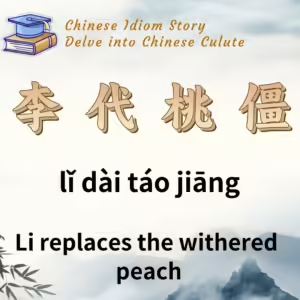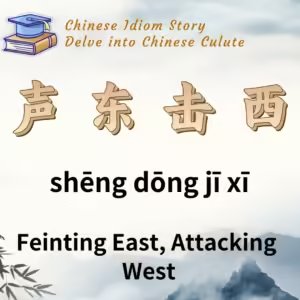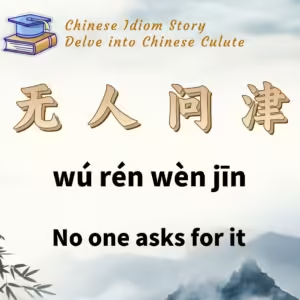
Chinese Idiom: 无人问津 (Wu Ren Wen Jin)
English Translation: No one asks for it
pīn yīn: wú rén wèn jīn
Idiom Meaning: This idiom means that no one shows interest or inquires about something. It is used to describe situations where something or someone is neglected or ignored, and no one bothers to ask or pay attention.
Historical Source: The idiom originates from the Eastern Jin Dynasty writer Tao Qian’s work 桃花源记 (Tao Hua Yuan Ji).
Idiom Story:
In Tao Qian’s 桃花源记 (Peach Blossom Spring), a story set in an idealistic utopia, a fisherman from the Wuling region stumbles upon a hidden paradise called the Peach Blossom Spring, where people live in peace without the interference of rulers or oppression. After returning home and sharing his discovery with a local governor, the governor sends men to find this paradise, but they are unsuccessful.
The story then mentions:
“南阳刘子骥,高尚士也。闻之,欣然规往。未果,寻病终,后遂无问津者。”
Translation: “There was a refined scholar named Liu Ziji in Nanyang. Upon hearing about this, he was eager to visit. However, he did not manage to go and soon passed away due to illness. After that, no one else inquired about the Peach Blossom Spring.”
This passage highlights that Liu Ziji, intrigued by the tales of the Peach Blossom Spring, intended to seek it out but never succeeded before he died. As a result, no one else pursued the matter, and the Peach Blossom Spring was left forgotten.
From this, the phrase “遂无问津者” (there were no more inquiries) evolved into the idiom “无人问津” to represent a situation where something has been completely forgotten or ignored, with no one interested in pursuing or exploring it further.

